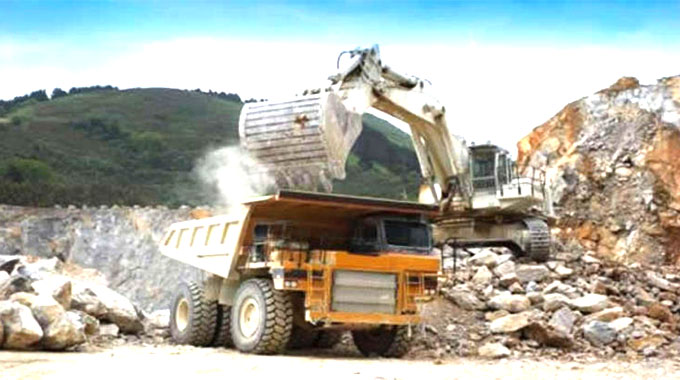Potable water shortages a ticking time bomb

Phillipa Mukome-Chinhoi Features Correspondent
Urban residents in Zimbabwe have been hit hard by perennial water shortages, which have seen them, especially those in Harare and Bulawayo, at loggerheads with city fathers, whom they believe are sleeping on the job, and giving flimsy excuses at every turn.
The authorities, on the other hand are quick to lay blame on either financial constraints, which hinder timely procurement of chemicals, or natural or man-made vagaries that have seen dam levels falling to below 20 percent in some cases.
They really are never short of excuses; playing the blame game that, however, appears to be skewed in residents’ disfavour. And the short of it is that notwithstanding the jumpy attitude on the part of local authorities, particularly in Harare and Bulawayo, taps continue to run dry; days, weeks, months and even years on end.
With potable water shortages biting deeper, residents have resorted to fetching the scarce resource from boreholes, wells and in most cases unprotected sources for use in their homes. Access to water is a basic human right, for humanity cannot exist without it. Water pervades our livelihoods because we do not only need it for drinking and cooking, but for other purposes like sanitation, bathing, gardening/farming, animal husbandry etc.
The water situation is dire, which has seen most suburbs going without supplies for up to six days in the week, with some even going for months or years in some cases without access to tap water.
However, use of water from unprotected sources comes with its own challenges.
Water-borne diseases like diarrhoea, cholera, typhoid, dysentery and Guinea worm have been known to break out in areas exposed to contaminated water due to lack of potable options.
Zimbabwe, like most developing countries in Africa and the world over, is burdened by water shortages, flooding and poor water quality. Researchers claim that up to 80 percent of illnesses in the developing world are linked to inadequate water and poor sanitation.
Some of the most commonly reported challenges experienced from drinking untreated water include, but are not limited to the following water-borne illnesses; gastrointestinal problems, diarrhoea, nausea, intestinal or stomach cramping, intestinal or stomach aches and pains, dehydration, and death.
Health experts aver that water is generally unsafe to drink before it is treated. When polluted groundwater reaches drinking water systems, it can pose serious public health threats. Nutrient pollution can affect vital groundwater and drinking water sources.
Surface water sources, like lakes, rivers and streams, provide drinking water for all living organisms.
Many substances that are hazardous to human health can enter water supplies. Chemical waste from factories is sometimes dumped into rivers and lakes, or directly into the ground.
Pesticides (chemicals that kill insects) applied to farmland enter surface water and groundwater, often in large quantities. Chemicals from agriculture, industry, and mining, and trash dumping can also make our water unsafe and cause illnesses such as skin rashes, cancers, and other serious health problems.
Lack of water can cause dehydration (losing too much water in the body) and death.
It is crucial that underground water is tested for harmful chemicals. Therefore, before digging wells or sinking boreholes, residents should seek expert advice. However, due to financial constraints and/or lack of knowledge, most residents forego this crucial engagement with experts, as a result they expose themselves to diseases.
The impulse or temptation rather to fetch water from unprotected wells is a consequence of lack of choice in a situation where boreholes are inadequate. On another note, using water from boreholes is no guarantee to safe water consumption, since the likelihood is high that the water may also be contaminated.
According to media reports, many boreholes in Harare are not safe sources of water as they contain disease-causing Escherichia coli bacteria related to faecal matter.
The question that then arises is, how safe are residents in the face of perennial water shortages in urban areas? In an interview, Chitungwiza Acting Town Clerk Dr Tonderai Kasu said all wells are unsafe, hence, residents should treat water from the point of use, even tap water, no matter from which source.
The Harare City Council also admitted in 2017 that the water pumped to residents’ homes may be unsafe for human consumption, and advised consumers to be cautious until such a time that total quality was assured.
One wonders if such a time has now come for residents to drop their guards with regards to tap water pumped to their homes, albeit rarely.
Dr Kasu indicated that water can be treated through boiling, using tablets and water treating chemicals. He said Chitungwiza Town Council, with help from donors, used to provide residents with water treatment tablets, but due to resource constraints, have since stopped the programme.
On provision of boreholes, Dr Kasu said council has resolved that each ward should have at least a borehole, and has engaged partners for assistance.
“As Chitungwiza Town Council, we have a resolution whereby every ward out of the 25 should have at least one borehole. Our main challenge is the financial capacity to achieve that on our own.
“We have engaged partners to assist us in this process, but at the moment we are still doing a scoping exercise to identify areas where there is great need. Some of the partners are UNICEF, OXfam, German Agro Action, a Catholic organisation and quite a number of others,” He said
Dr Kasu advised that residents should practise good hygiene practices at home by washing their hands before eating, after using the bathroom, washing of all vegetables and eating hot food all the time.
The good news is that at the moment there is no major outbreak of diarrhoeal diseases like typhoid and cholera as has been the case in the past. But for how long can residents keep on sitting on a time bomb with each moment longer spelling disaster?









Comments